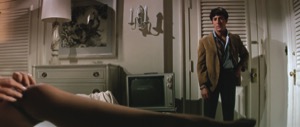
Feb. 22, the Academy of Motion Picture Arts and Sciences will give out its coveted Oscars, long relished as the highest honor in filmdom. Then, we will know the very best movie of 2014, right? Let’s just say the answer is not always … yes.
But how could ‘Oscar’ ever be wrong? Keep in mind the Academy’s 6,000 members are not critics; they are (or were) actors, directors, screenwriters, technicians, studio executives, real “industry people.” Membership is by invitation only. A majority are older, straight white men. That may favor splashy epics, standard plot lines, big name stars and major studio productions. Oscar campaigning has become both political and commercial, with millions spent for ads, receptions, publicity and thousands of DVDs to influence Academy voters. Plus, there’s sentimentality.
Certainly there are times when the Academy got it totally right, awarding the Best Picture Oscar to Lawrence of Arabia, Midnight Cowboy, Casablanca, The Apartment, West Side Story, The Silence of the Lambs, and The Bridge on the River Kwai to name a few. Yet, in the hindsight world of Oscar “goofs,” we offer the following examples “for your consideration.”
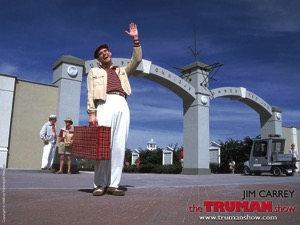
1942: Ranked on more lists than any other picture as the greatest movie ever made, Citizen Kane, was a fictional story based on the life of newspaper tycoon William Randolph Hearst. A brash, young Orson Welles, its writer, director and star, made an artsy, edgy, thoughtful, inventive film – which likely doomed it. It lost to How Green Was My Valley, a nice story about Welsh miners, long since forgotten.
1953: The Greatest Show on Earth is deemed by many critics to be one of Oscar’s biggest mistakes, but the circus spectacular had the force of legendary director Cecil B. DeMille behind it. It beat out perhaps the finest, most powerful western of all time, High Noon, about a town sheriff forced to face off against bandits alone. A possible factor for its loss: screenwriter Carl Foreman was black-listed in Hollywood; this during the Communist witch-hunts.
1957: Most agree another Oscar error was Around the World in 80 Days, big, brassy, filled with stars and produced by Michael Todd (then, Elizabeth Taylor’s husband). A better choice would have been either of two other classic epics: Giant, James Dean’s third and final film, or The Ten Commandments. Todd was obviously able to part the sea of Academy voters.
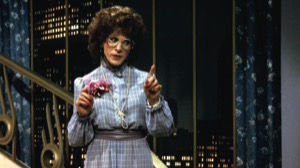
1968: In the Heat of the Night, its plot focused on race relations, won at the height of the civil rights era and urban unrest. It was good, but more deserving of Oscar glory were two of the best films of all time: Bonnie and Clyde, whose superb acting, scripting and cinematography showed us that criminals are people; and The Graduate, the classic that defined a generation, seducing us with its charm as surely as Mrs. Robinson seduced Benjamin.
1969: At the time Oliver! seemed a good choice: great songs, a famous story and movie musicals were “in.” Looking back, the Best Picture of the Year had to be the un-nominated 2001: A Space Odyssey. It was Stanley Kubrick’s directorial, visionary and visual sci-fi masterpiece, and like Citizen Kane, ahead of its time. We may still not understand it, but it made us think. Or Hal, its computer, did it for us.
1978: Annie Hall is considered by some to be Woody Allen’s masterpiece, but Midnight in Paris and other of his films outshines it. The Oscar should have gone instead to Star Wars. I know … the Academy doesn’t honor science fiction in the top category, yet it ushered in a new era and changed forever how movies are made. Under the fun, it was brilliantly conceived and technically crafted.
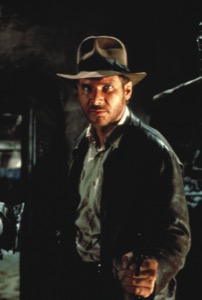
1982: Chariots of Fire, the story of an Olympic runner, was the surprise winner. It was inspirational and its theme music was big on the airwaves at the time of Oscar voting. Could that sway the Academy? Sure, why not? Its biggest competition that could have won was Raiders of the Lost Ark, the film that launched a franchise and truly made going to the movies fun again, snakes and all.
1996: Braveheart won perhaps because it was an epic steered by Mel Gibson. More endearing and fresh was Babe. Yes, the film about a talking pig that taught us about respect, communication and being oneself. The real Best Picture? Probably Ron Howard’s commanding Apollo 13. Sure, we knew the astronauts would make it home, but it skillfully kept us at the edge of our seats for 140 minutes.
1999: Shakespeare in Love is considered to have won largely through an aggressive campaign by studio head Harvey Weinstein. Though a nice comedy, it’s Steven Spielberg’s phenomenal World War II movie Saving Private Ryan that will endure, especially the extraordinary first 20 minutes of storming the beach at Normandy. An un-nominated oversight was The Truman Show, about a man (Jim Carrey) whose whole life was unknowingly a TV show. It was a compelling cultural commentary.
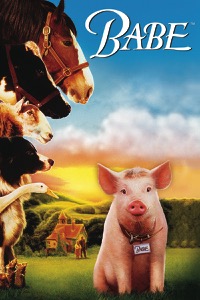
2001: Gladiator was another likely case of bigger seeming better to the Academy. A credible film, but a more stunning one that combined martial arts, fantasy, imagery and a story that grabbed us was Ang Lee’s Crouching Tiger, Hidden Dragon. Alas, a foreign language film has never won a Best Picture Oscar.
2006: Any list of Oscar injustices has to include the surprise win of Crash over Brokeback Mountain. The latter had won virtually every critics award and the Golden Globe to be one of the most honored movies in history. How did Crash, a gripping yet formulaic film, win? Was it the ‘safe’ choice? Was it homophobia? Whatever, the Academy knew how to quit it, though Brokeback is already standing the test of time.
Other probable Oscar miscues include:
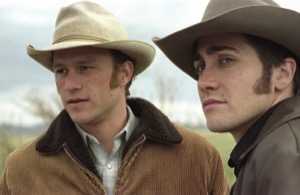
1952: An American in Paris winning over A Streetcar Named Desire
1965: My Fair Lady fashionably beating our Dr. Strangelove
1983: Gandhi besting Tootsie or E.T.
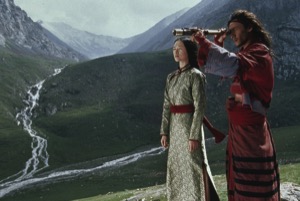
1986: Out of Africa taking the gold over The Color Purple
I’ll disagree with some critics and defend The Sound of Music in 1966 and Forrest Gump in 1995 as, indeed, deserving. The former sings in our hearts 50 years later; the latter was a masterful fable, though The Shawshank Redemption has grown in stature over the years. The Academy can certainly be chastised that certified classics like Fantasia, Rear Window, Singin’ in the Rain, Some Like It Hot, Vertigo, Breakfast at Tiffany’s, Psycho, and Blade Runner were not even nominated for Best Picture!
As we tune in for the ceremony, will the Academy give Oscar where Oscar is due? Check back in 10 years, and we should have a pretty good idea. For now, enjoy the fun, and know that the Academy, after all, is only human. Right or wrong.











